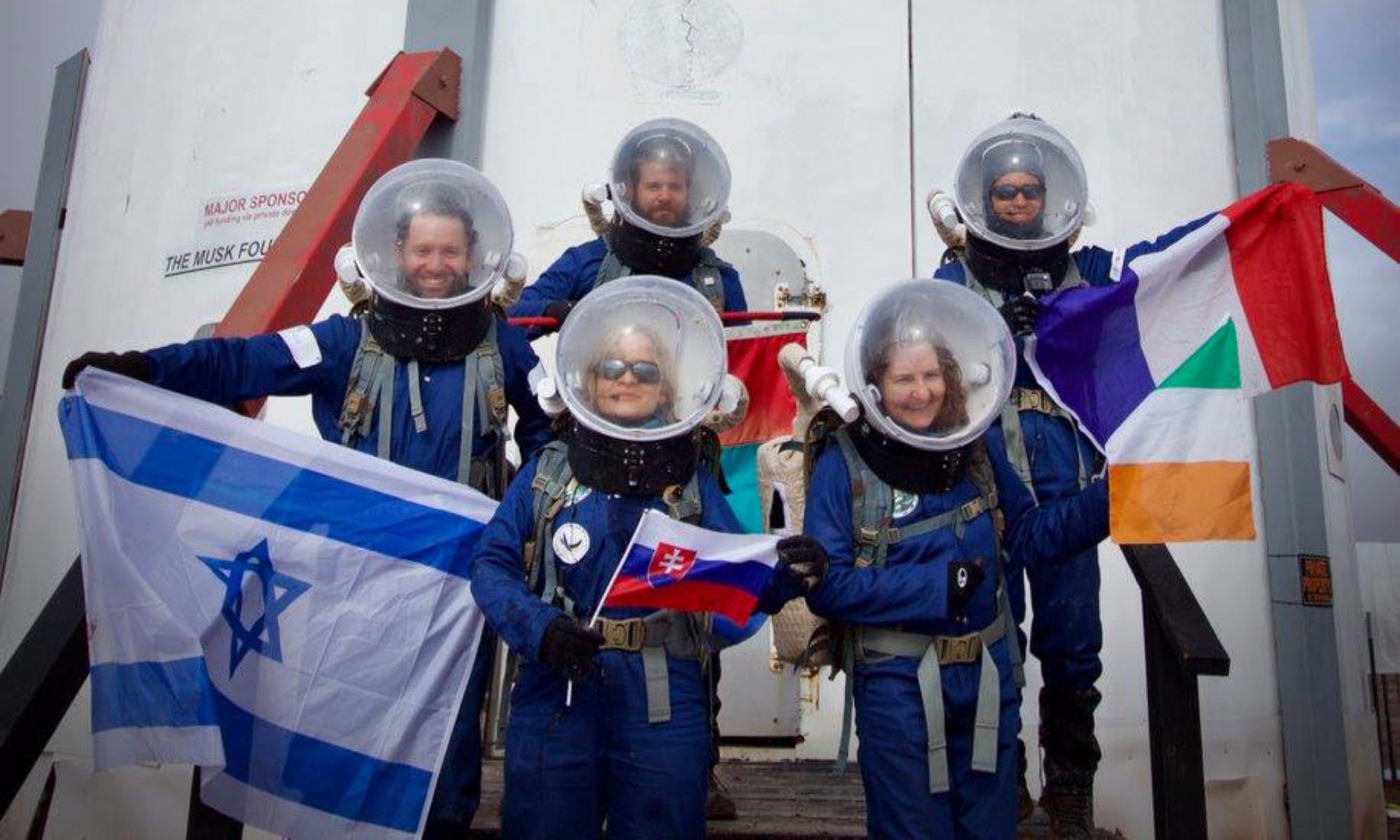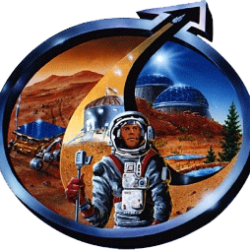Sol 23 – Keeping the (space)ship afloat!
“I have good news,” he said. “I have looked at the sky. A rocket is coming to take us all home. It will be here in the early morning.”
– Chapter 23 of The Martian Chronicles by Ray Bradbury
Today Jérémy is writing to you, as Marie must focus on her health. Hopefully, she will be back very soon, and in perfect shape, to narrate our chronicles here much better than I will ever do. In the meantime, Alice and Corentin have accompanied her on her way to the Earth, where she can have surgery.
I must say that it was a solemn moment to see them leave, early in the morning, all equipped with their luggage and their determination. As there were only four of us left at the Mars Desert Research Station, I could not help but think about the pioneers of space exploration. Those who ventured into space alone, or on the surface of the Moon with only one fellow crewmember. Alone in front of the Universe, far away from home.
Quentin and Alexandre mentioned how big the station now seemed, as the four of us were gathered on the Upper Deck. Only then did I fully realize that the operations would become slightly more difficult. Indeed, for safety’s sake, we make sure that at least two of us remain in the Hab at all times. Everyone thus had to change their habits, like Adrien who watered the crops earlier than usual so that he could be at the Hab during this morning’s EVA. It was supposed to be a routine activity, as Quentin and I simply had to change the batteries and retrieve the data of our atmospheric instruments. However, even the easiest tasks feel more complex in this context.
This being said, it was also very interesting for everyone to get the opportunity to experience different roles: As both the Commander (myself) and the Executive Officer (Quentin) were in EVA, we gave the responsibility of the station to Alexandre. With the Health & Safety Officer away from the campus, his duties have been handed over to me. And we all gathered our energy to write the requested daily reports.
Replacing some time dedicated to scientific activities with other tasks often feels a bit frustrating, but that’s how it is: we need to keep all the systems running, while ensuring that no useless risk is taken. Onboard the International Space Station, only half of the schedule is dedicated to science, while the rest consists of operational tasks!
When there is already more than enough to keep a crew of seven people busy, one may think that it must be difficult to share this workload between only four crewmembers. However, I think that we have all learnt a lot from each other and ensured that there were enough redundancies so that any subset of four crewmembers would have managed to keep our basic operations up and running. I must say that I feel very proud about this: it is not a success of some individual crewmembers, but a success of the whole team!
During the past few weeks, we often talked about the fact that, when all gathered around the table, we always had the feeling that there were not enough people and that someone was missing. It is a very strange feeling, but we had to count to make sure that the seven of us were actually there. Now I let you imagine how it feels with only four crewmembers left! As it was already dark and I was climbing the stairs towards the Upper Deck, I almost felt the isolation of the old lighthouse keeper. It is quite romantic to see it this way, but it is only one out of many parallels that you can draw between space and the sea, and it is no coincidence that the European module of the International Space Station is called Columbus.
Like sailors at sea, far from the daily stimuli that the world has to offer, we also feel a bit more affected by some events. For instance, in the afternoon we noticed with pain that the leaves of the tomato crops were starting to turn yellow, as the temperature within the GreenHab was reaching about 40°C/100°F. Even worse: the lifeless body of one of our eight fishes was found in the aquaponics system. In such a restricted group, we quickly get attached to the simplest things. I am not sure whether this event would have had such an effect on the Earth. Here, I can ensure you that we will mourn the passing of this poor creature for quite a while! Adrien has tested the water quality to investigate the potential reason behind this unfortunate event. Nothing seems wrong so far, we will keep you posted.
But please let me finish this report on a positive note. As I am writing this, one of our two moons is magnificently rising in the sky, and I just learnt that the surgery of Marie went smoothly. She woke up from anesthesia and will soon take the shuttle back to the station with the two other crewmembers. Only when you lose something important, you truly understand how valuable it is to you. And God knows we missed all of them during this very long day!

